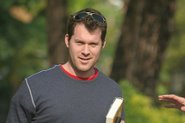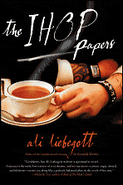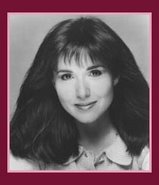
 Welcome to “Up Close and Personal.” For every interview I will be introducing a literary personality discussing his views and insights, as well as upcoming literary events around the world.
Welcome to “Up Close and Personal.” For every interview I will be introducing a literary personality discussing his views and insights, as well as upcoming literary events around the world.Today’s interview is with Howard G. Franklin. He was born in St. Joe, Missouri, in 1940. Raised in Los Angeles, he received his B.S. in Real Estate and Finance from the University of Southern California, and his J.D. from the University of California, Berkeley.
From 1968 to 1988, Howard served as a Deputy Public Defender for Los Angeles County, was engaged in the private practice of law, and became a partner in F & F Investment Company.
An avid sports enthusiast, Howard has been "learning to play tennis" since he was seven, and he is fervently devoted to baseball and his beloved Seattle Mariners with a religious zeal inherited from his childhood hero, Grampy Max.
It is family, however, that truly centers his life, and he frequently travels to Los Angeles to visit with his Mom and Dad, two sisters, and assorted nephews and nieces—not to forget for a second, his daughter, Amy, who lives in Long Beach with her husband Chris, and is pursuing a career in music therapy. He is also the proud father of two sons, Matthew, who is a vice-president for a property management company, and Nicholas, who is employed in the hotel field—both of whom share his love of athletics.
In 1991, after the untimely death of his second wife, Patty, Howard moved to Portland, Oregon—where amidst the joys and trauma of single parenting Matt and Nick, he began writing full time.
His short stories and poetry have appeared on radio, in newspapers, and numerous national magazines and literary journals such as A Different Drummer, Razem, the Lake Oswego Review, The Sandwich Generation, Silver Quill, Nomad's Choir, Single Vision, and Poets and Work. He also has appeared as a guest poet in Poetspeak's Reading Series at Portland State University, and in the Northwest Coalition's celebration of National Poetry Month in Vancouver, Washington.
An Irish Experience is Howard's first published book, and combining both his lifelong love of the written word with his unswerving passion for Ireland, represents for him the realization of a dream. In addition, for those who love a generous portion of magic topping success's sundae, Inkwater Press's decision to publish An Irish Experience arrived on Howard's last birthday during a meeting in which he was also introduced to the editor, Linda Weinerman, who strongly shaped the idea of public birth.
Their instant connection soon produced far more than literary sparks, leading to a romance that can only be classified as a real-life fairytale. Married in 2008, honeymooned in Ireland (where else?), the couple are currently hard at work polishing Howard's courtroom novel, Gideon's Children, for future publication, while sharing life with his three children, as well as Linda's daughter, Wendy, and her husband Chris.
E.I. Would you share some early insight into who you were as a teenager? What were you like? Give us three “Good to Know” facts about your first job, the inspiration for your writing, any fun details that would enliven your page. Tell also your readers about Howard G Franklin -- the man behind the former Deputy Public Defender for Los Angeles County, a partner from an Investment Company and now an author?
HGF: I was very shy in my teens, concentrating on playing on my high school tennis team and my studies. There were only l200 students at Beverly Hills High, and while I was friendly and knew most of them, I only was close with five or six male buddies who shared my focus. And looking back, I wish that I had pushed myself more to have experienced a myriad of opportunities that were available.
As for my first full-time job, that was at 28, when I became a Deputy Public Defender. “The” turning point in my life, the courtroom forced me outside my natural shyness and truly opened me up to the real world. Stationed in Compton, I interacted with persons from every color, race, and religion, as well as diverse economic, social, and educational backgrounds. Obviously this widened my perspective, but most importantly for me, it forced me to grow. Like a Hydrogen bomb exploding, in learning about people in general, and specifically how to stand up for my clients, I also learned to believe in myself, and that hard work and perseverance in pursuit of a given goal paid off.
Looking back, these years led to my desire to write. In helping my clients, I gave full vent to my desire to help others---to connect with others and share. In fact, during my last year as a PD, on weekends I began to write short stories and poems, discovering in the process, that the love of words which I had had since a small boy, was now stronger than ever.
E.I. What is it about the art form of writing that enchants you the most?
HGF: Well, picking up on my love of words acquired when I first learned to read, “enchant” is truly the correct word. All my life, when I read the works of masters such as Faulkner, Fitzgerald, and Thomas Wolfe in particular, their use of language mesmerized me. And later, when I began to write myself, the idea that I could with words communicate not just what I think, but what I ‘feel,’ struck me, and still strikes me, as a true miracle. I read once that a writer reaches up and tries to grasp some semblance of the meaning of human existence and set it down on paper. That’s hard to do, let alone do it well. But I think that opportunity to try and accomplish this goal, is in itself a true blessing. And if one gets lucky, and gets to have his or her ‘words’ reach out and connect to another human being and touch a person----well, sublime, is an understatement of significant magnitude!
E.I. What sparked your interest in the subject of Ireland? What were your favorite aspects? Please tell your readers about your book “An Irish Experience.”
HGF: In 2000, I travelled alone to Europe for the first time. A lifelong love of tennis drew me to attend Wimbledon, and after two days at the Cathedral of Tennis, I spent two weeks traveling around England. I enjoyed myself immensely, finding that traveling alone worked well for me. And upon returning home, I soon asked myself what comes next?
What entered my mind late one night while I was drinking coffee in my kitchen and musing over possibilities, was Ireland. The picture in my mind was of this beautiful land of green valleys and sparkling lakes, and when James Joyce entered the conversation I was having with myself, I became intrigued. The following day, I drove to the bookstore and purchased some books and maps---and after an hour or so of browsing, I was hooked.
Unquestionably, the aspect that I enjoyed most was the incredibly welcoming Irish people. Historically, over the past 1600 years, the Irish have absorbed invaders and visitors alike. They absorbed the Celts first, then the Vikings, and finally the English. And today, first off, their warmth and friendliness instantly puts you at ease. The next, their relaxed pace of life slows one down to allow full appreciation of Ireland’s art and architecture, song and dance, and almost indescribably gorgeous geography—not to forget for a second, their great literary tradition, which features four winners of the Nobel Prize.
As I pointed out in An Irish Experience (AIE) , through its investment in education, Ireland has over the past 20 years enjoyed the highest level of prosperity in its history. However, while enjoying the so-called Celtic Tiger, the Irish have not become a consumer society. Instead, in large part they’ve retained their ties to the land and remained devoted to family, community, and church—thereby establishing a refreshing balance between progress and tradition.
AIE has as its mission to share with the reader the flesh-and-blood reality, the true experience of an actual visit to Ireland. And AIE accomplishes this goal by carefully interweaving Eire’s storied past and vibrant present into an exciting journey of discovery, complete with a spiritual search for Home, and accompanied by an off-beat sense of humor that makes the learning adventure fun.
With Ireland introduced as “a lovely lady wearing a single strand of wedding-white pearls, one each for Dublin, Sligo, Galway, Limerick, Killarney, Cork, and Waterford,” the reader then travels north, west, south, and east to see, hear, taste, touch, and smell the fascinating facets of a culture created by 5000 years of history amidst a geographical wonderland. And spiced with generous helpings of engagingly earthy banter between the narrator and his traveling companion, a fictional Greek-Jewish philosopher from antiquity known as the Professor, this journey offers a total experience comprised of art and architecture, song and dance, poetry, politics, and people. As from Dublin Castle, to Yeats’ Land of Heart’s Desire, to the Gap of Dunloe and Reginald’s Tower, the reader is immersed inside an adventure formed from day-to-day discoveries, intermixed with meeting both the welcoming citizenry and Erin’s renowned historical and literary figures.
In Dublin, on Wood Quay alongside the River Liffey where the Vikings landed in 842, shopkeepers, students, and pretty ladies mingle, then talk to the reader, as does James Joyce when he’s spotted later about to enter his favorite pub, Buswell’s, near Leinster House where the Irish Senate and House of Representatives meet. When the scene shifts north to the countryside and the Hill of Slane, St. Patrick shares how he introduced Christianity into the Emerald Isle, while at nearby Tara, Eire’s greatest King, Brian Boru, relives the saga of Clontarf where his army drove the Norse invaders from the motherland’s shores. On a train ride to Sligo Town, farmers, housewives, and merchant marines share thoughts and feelings about work, family, and community, while further south and west, Galway waits with its tale of the 14 tribes, as does Limerick City, Cork, and Waterford, each with a separate story that smoothly merges into One. There’s Daniel O’Connell, the Liberator, to meet, along with freedom-fighter Michael Collins, not to overlook George Bernard Shaw, Oscar Wilde, and Samuel Beckett. The diamond-dazzling lakes of Killarney beckon, as do the monumental Cliffs of Moher and the melancholy desolation of the Burren and Connemara. And there’s music and food and fashion, each separate thread weaving itself into a full fabric presented so personally that one can actually feel the true treasures and tender frailties of a foreign society.
And more. For AIE is also a celebration: Of the uniqueness that is Ireland—of a more simple and slower-paced way of life, graced by true touches of “innocence” in a world growing increasingly complex and cynical. Of the need for each of us, in our own separate way, to reach in and outside ourselves in order to connect to the places and people where we live, and visit. Of the eternal question: Is there a Home? A particular place where we truly Belong? Or are there only the lakes of love that the heart makes?
E.I. As an author did you take the view of an Irish man or objective observer while writing your book?
HGF: I took the view of an objective observer. Having no Irish roots (my grandparents arrived from Lithuania, Ukraine, and Hungary), when I arrived in Ireland in September, 2001, I was pretty much the proverbial blank slate. For even though I had read some Irish history, and studied my maps and guide books, I had not formed any strong opinions. And though I soon came to love Eire and her unique culture, when I wrote AIE, I tried very hard to recapture on paper exactly what I had experienced as my journey unfolded so as to say to the reader: Here’s what I found. I think and feel it’s unique and very special. How about you?
E.I. What was your biggest challenge in writing “An Irish Experience”? How did you decide what level of details your reader will accept? Did you work them out in advance, or did they evolve as you wrote the story? How did you overcome these challenges?
HGF: The largest challenge I faced in writing AIE was in fully capturing the geographical beauty of Ireland, along with the uniqueness of its culture and the incredible warmth of its people without producing a large book. When I imagined my reader, he-she was someone who was planning to travel to Eire, and wanted to know and feel what it was like, and also someone who couldn’t travel there, so was relying on me to take them. I therefore asked myself: Hobman, what would you like to know and feel? And I recalled that when I was planning my trip, I had found many books about the different aspects of Ireland, i.e. history, geography, music, art, famous writers, but no single volume that offered the basics of the various categories together.
So, that became my goal: Take my reader to the Emerald Isle and let he-she ‘experience’ the wonders it has to offer. What I wanted and hoped for, was for AIE to entertain and educate its reader by coming as close as possible to transporting him-her to Irish soil and then use his or her brain and all the senses to know and feel the magic of Ireland. I felt that the best way to accomplish this was to recreate my experience, and have the reader travel right alongside me. So AIE is organized according to the cities, towns, and villages I visited, along with people I met and the experiences I enjoyed. Then, as we travel along, I interwove the various aspects of Irish history, art, music, etc. so that the reader would have as much depth as possible.
E.I. How do you imagine the audience when you are writing? Do you have sheets of newsprint covered in a story boards all over your walls?
HGF: I don’t use story boards. For AIE I began with a general outline, organized as I stated above. Then, I consulted the journal I had kept during my visit, which was extensive because I was travelling alone and had the time to keep it up, and because I was so fascinated by what I was experiencing that I wanted to capture as many details as possible and cement them in my memory. I also had 1200 plus photographs to assist me in describing details of places and people.
E.I. If you were asked to read a page from “An Irish Experience” is there one that you would personally select to share with your readers? And why?
HGF: It is very difficult to answer this question, because as I stated before, AIE is organized into the cities, towns, and villages I visited, and each has so much to offer that it is most difficult to pick just one as a highlight.
So, I would pick page 1 from the opening chapter entitled Genesis, because it provides the reader with an overview of the journey he-she is about to embark upon, and also makes him or her aware of the fact that the author and travelling companion possesses an oddball sense of humor.
E.I. Please tell us about your next courtroom novel, “Gideon's Children”? Can you give us a sneak peek about the book? How was your research different from your upcoming latest novel to “An Irish Experience”? What was the hardest part in writing it?
HGF: In late March of 1963, Clarence Earl Gideon, with the weighty assistance of the U.S. Supreme Court, ignited the final fires of a social revolution that was born thirty years earlier almost to the day. In a judicial decision bearing his name, the Court, with Magna Carta vision, reversed Gideon’s conviction for burglary in a Florida Court where he had not been represented by an attorney, and proclaimed that in a criminal proceeding, every person has a right to counsel, and if the defendant could not afford an attorney, then the State must provide one free of charge. And after almost two hundred years of labor pains, the modern day Public Defenders Office was born and along with it, a new and different breed of criminal defense attorney.
Gideon’s Children (G.C.) is the exciting story of the young men and women who upon this ignition emerged to fuel those final fires on the provided battlefield of the courtroom. Framed in time from the Summer of 1970 to the Autumn of 1972, these “children” of Gideon are placed under a microscope for the reader’s observation. And from the collective scene formed from individual sightings, the author creates an intense drama spawned by a brutally realistic look into the unique and often bizarre world of criminal law that lives and breathes its life amidst the more civilized elements of greater society, who unknowingly are subject to inhalation within its borders upon a moment’s notice.
Viewed primarily through the eyes of five young Public Defenders, the reader is swept down onto the floor of the embattled courtroom where he-she walks amongst the remaining cast of judges, prosecutors, and cops within the frightening but fascinating atmosphere of murder, rape, and robbery---heroin, marijuana, and Seconal. Entranced by the spine-tingling realism of the human conflicts that jump off the page at the reader from start to finish, the author, beneath this veil of excitement, and still in terms of human experience, subtly educates him-her with respect to arrest, arraignment, preliminary hearing, trial, and the other working parts of the American system of criminal justice. Then, having outfitted the reader with the working tools so that he-she is equipped to formulate a judgment, the author presents the novel’s primary thesis that it is the dark aspects of human nature which pervert not only the legal system, but also man’s greater living experience which the legal system serves to accurately mirror at a chosen point in time. Delving even more deeply into the mystery of the human living experience to illustrate G.C.’s hypothesis, the author carefully constructs a stage upon which his painstakingly developed characters act out a “revolution” from within the legal system.
In writing G.C., my research was actually far less than for “An Irish Experience.” This resulted because having been a Deputy Public Defender for four years, I was able to draw upon my experience in handling thousands of cases, as well as having first-hand knowledge of numerous other cases handled by fellow Public Defenders, whereas with respect to Irish history, for example, I needed to read extensively in the area.
E.I. As a writer do you ever feel pressure or insecure, or are you able to separate all that from your own creative process?
HGF: I often feel “insecure,” especially during rewriting. I am always nagged by the demons: Is this particular work the absolute best you can make it, HGF? And even if so, is it good enough to warrant the attention of an audience? To me, a writer is asking a reader to give him or her the most valuable of all things, time, because it cannot be replaced. So the obligation to reward that investment with both entertainment and education is a heavy responsibility that weighs on me. In the end, of course, one can only do the very best that one can do, and pray it’s enough.
E.I. Mr. Franklin, Thank you for contributing to my blog. It has been a pleasure for me to get to know your work a little better. Would you like to end your interview with a writing tip or advice for young aspiring writers?
HGF: Thank you, E.I. , for gifting me with the opportunity to share with other authors and readers.
As for writing tips, I have two that I follow religiously: First, be honest. Don’t be afraid to strip yourself naked page after page after page. And secondly, while striving to always increase your vocabulary, never, ever include the words, give up, in striving to accomplish your goals.
Photo Howard G. Franklin by Image Express
For more information on Howard G. Franklin, please visit his site.
To purchase An Irish Experience online today, please click on one of the following:
Amazon.com
Barnes&Noble.com
Inkwater Books
Borders.com











.png)

















No comments:
Post a Comment